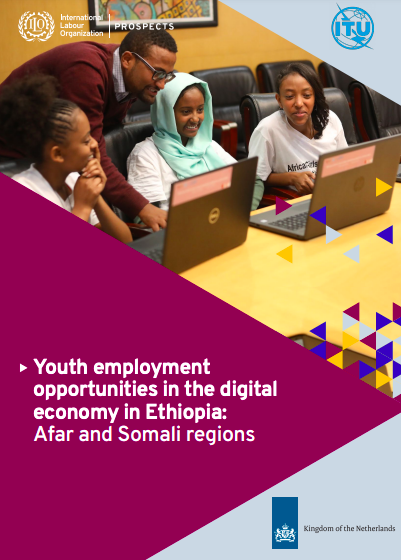Ethiopia
Over the past 15 years, Ethiopia has been among the fastest growing countries in the world at an average of 10 percent per year (World Bank, 2021). However, the economic growth has not been job rich and the labour market has not been able to absorb the new labour force entrants entering the labour market. Consequently, the urban unemployment rate is high, in which the youth and female are the most affected. There seem to be a mismatch between the labour market demand and supply in terms of skills and knowledge of the new graduates. Unemployment is one of the main driving force for youth to look for work beyond the local labour market (ILO, 2020).
In the given socio-economic context, if Ethiopia becomes a middle-income country by 2025 as stated in the Growth and Transformation Plans (GTP II 2015–2020), its economy will have to become more diversified, therefore having strong implications for the education and training system.
Technical Vocational Education and Training (TVET) is a key pillar of the Government´s efforts to strengthen the education and training system. The Ethiopian National Employment Policy and Strategy highlights the importance of improving the quality of general education and TVET to reduce the number of working poor. Moreover, Ethiopia’s latest TVET strategy focuses on:
- Improving access to TVET;
- Strengthening outcome-based training through an integrated, yet decentralized, and result-oriented system;
- Improving quality assurance and skills assessment;
- Improving the quality and relevance of training programmes;
- Strengthening the employment of TVET graduates;
- Intensifying support to micro and small enterprises (MSEs).
Through this review, the ILO seeks to explore further opportunities to strengthen policy, legislative and institutional environments and mechanisms, working closely with host governments and other national actors and partners.
By providing a comprehensive and robust picture of the situation on the ground, the report offers actionable areas of intervention to support policy development, reform and implementation capacity of the host governments, other national and local actors, including the social partners, to enhance inclusion and protection.
However, with limited access and use of Internet, marginalized youth from host and refugee communities, may lose out reaping the benefits of digital services and opportunities.
This research provides insights in the current job opportunities in the digital economy and barriers to its uptake in the Afar and Somali regions of Ethiopia for youth, especially from the forcibly displaced communities.
This is a jointly published report of the International Labour Organization (ILO) and the International Telecommunication Union (ITU).
The Youth Employment Programme and Skills and Employability Branch are organizing a regional workshop on the theme of enhancing youth employability and easing labour market transitions. This three-day interregional event is part of a series of ‘What Works in Youth Employment’ Knowledge Sharing Events to facilitate learning and dialogue through evidence-based ‘good practices’.
The objective of the workshop is to bring together stakeholders (including our tripartite constituents) from nine African countries (Côte d’Ivoire, Ethiopia, Kenya, Nigeria, Rwanda, Senegal, Sudan, Tanzania, and Zambia) in an interactive forum for exchange and peer learning with guidance from technical experts on effective, replicable and scalable supply side initiatives that address employability, skills demand, anticipation of skills needs and the bridges between supply and demand. A report based on exchanges and lessons learned during the workshop will be produced.


